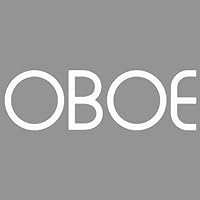Video editing, a skill that was earlier associated with only certain professions such as television studio editors, film editors, broadcast and sound engineering technicians, multimedia artists and animators, has now become important for several other job profiles. With online classes being held across the country to ensure continuity in education, educators have had to learn how to edit videos and share it with their students. Besides having the skills, you also need a system that supports video editing. Typically, powerful workstation class desktops have been known to have this capability.
Unfortunately, with work-from-home becoming a norm, it’s not possible to deliver large desktop workstations to your workforce. The good news is that even laptops come equipped with video editing capabilities. You just need to choose the right one for your employees to do their job smoothly. Let’s understand what to really look for in a laptop with video editing support.
Things to keep in mind
When it comes to video editing, there are certain requirements that a laptop must have. While basic video editing can be done even with ordinary laptops or even a smartphone, but if you need to do professional video editing (as high as 4k resolution), then you’ll have to work with HD quality videos, transitions, special effects, background music, voice-over, just to name a few.
You will need to do tight editing, and once all the work is over, you’ll need to render edited footage. The rendering process itself is very resource intensive and can take hours even on high-end machines. So, an ordinary laptop just won’t be able to handle it. What you need is a laptop high on performance. The most important things to consider while choosing one are processor, RAM, graphics, screen, and storage. Plus, warranty, support, and stability. Let’s understand this in more detail.
What you need are laptops with a powerful processor. If it’s really serious video editing, then you can’t go below an Intel Core i7 CPU. You might even like to go with a Core i9 if you need more power, or an Intel Xeon for professional work. You can also go down to Core i5, if the work is not as demanding. However, it’s highly recommended not to choose a Core i3, because it just won’t be enough.
Besides CPU, you also need a GPU or Graphics Processing Unit. Laptops nowadays come with a discreet graphics chip with additional video memory. Go with one that gives at least 4 GB or more of professional dedicated video RAM. Plus, there are graphics chips, like the Quadro, which have been created for graphics intensive or video editing work.
The screen is also important when it comes to video editing. You need a Full-HD screen that’s color calibrated to be able to view your HD videos and ensure that their color is optimized. You might even like to look for a bundled offer where the vendor is selling an external large display along with the laptop.
RAM is next, and don’t go below 8 GB, while 16 GB to 32 GB is recommended, depending upon the level of work and budget you have. Storage is also important, and nowadays SSDs have become very common. However, they’re expensive, so go with 512 GB if 1 TB is beyond your budget. If that’s also not possible, then you could opt for a 1 TB SATA drive, but make sure it’s RPM is not less than 7200.
Lastly, warranty, support, and stability are of course important. Look for a vendor that offers onsite warranty and has a strong support network, so no matter where your workforce is sitting, there’s a service center near them should their laptop need any maintenance. By stability we mean it should not crash and the software should be certified for the hardware. You wouldn’t want a situation where you’re through 90% rendering your video and the laptop crashes, taking all your work with it.
If you’re exploring options, then HP ZBooks might be worth checking out. They have all the specs, warranty, service, and stability that we just discussed. Plus, they support 4K resolution, which is the highest possible on screens, and therefore will give you the best possible image quality. Add to that support for 1 billion colors and you get a screen perfect for all your graphics work. Lastly, the ZBooks support a host of security features to ensure that that device remains well protected even from unknown malware attacks.
Compare and view all the best HP Video Editing Laptops





















